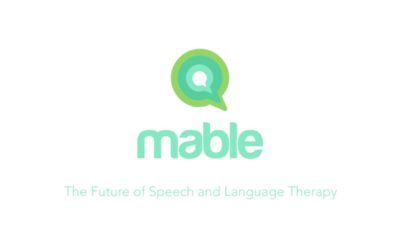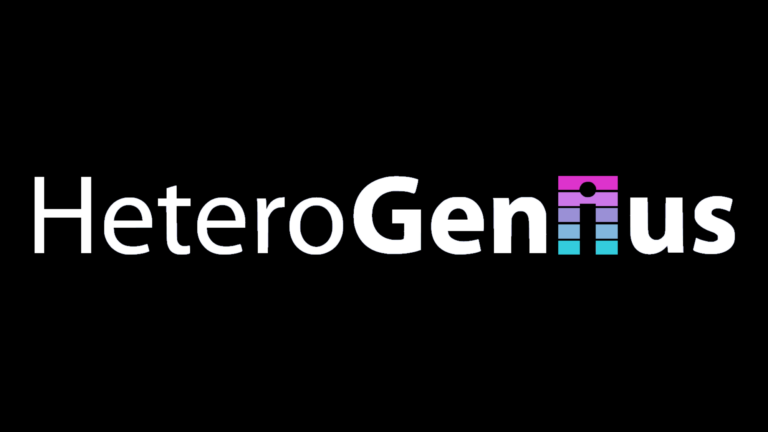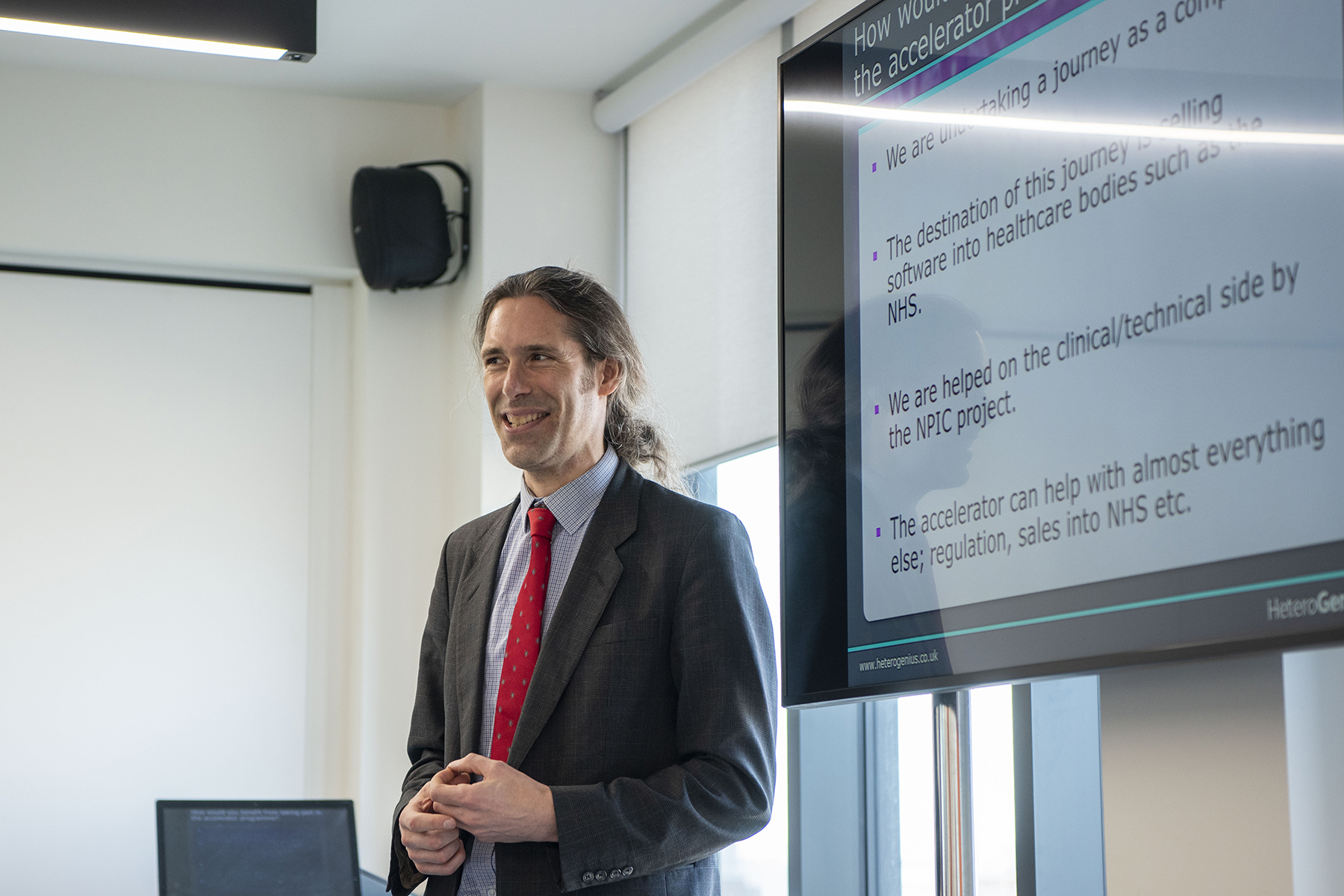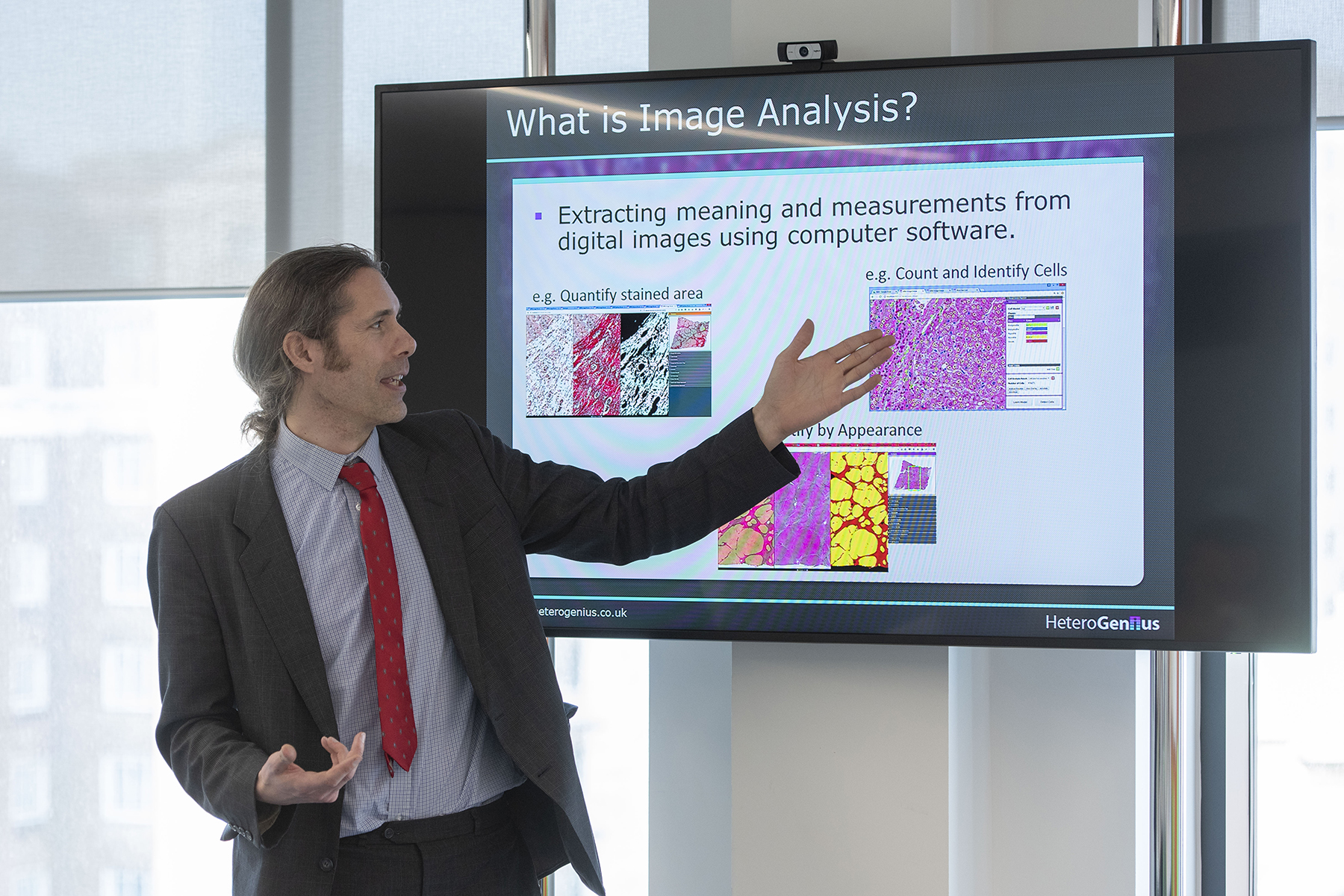We talked to Derek to learn more about HeteroGenius’s background.
Why did you start HeteroGenius?
I had been researching and developing software for digital pathology image analysis at the University of Leeds since 2003 when Dr Darren Treanor and Prof Phil Quirke (Consultant Pathologists in Leeds) walked into my department and started talking about the digital slide scanning technology they had just had installed and how it could potentially be used.
We wanted to take what we had done to a wider audience. The original aim was to develop user friendly tools for researchers in both academia and industry. We now have an aim to develop products for clinical use in hospitals.
Tell us more about the tech behind the product.
There is a wide range of technologies behind our products, but the “clever bit” is state-of-the-art AI techniques based on machine learning. This is based on the principle that the computer “learns” from examples.
We also combine this with robust statistical techniques from mathematics that can handle noise and variation in applications such as building 3D volumes from 2D images. All this is wrapped up in a user-friendly web-based front end that means deployment in a large organisation is trivial.
Where are you at right now?
Right now, we are involved in a grouping called the Northern Pathology Imaging Co-operative that is aiming to bring AI technologies to the hospitals across the Yorkshire and Humber Region.
The idea is to install digital slide scanners in a connected network across the major hospitals in the region to form a platform for the development, evaluation and deployment of AI-based technologies. It’s really exciting; we have £10.1 million from Innovate UK and matched funds from the digital pathology vendors to achieve this.
We have also been part of the Yorkshire & Humber Academic Science Health Network accelerator programme, Propel@YH, this year in the 2019 cohort which has provided invaluable insight into considerations for the technology.
What are your aims for the next year?
The aim for the next year is to develop the clinical product within the Northern Pathology Imaging Co-operative and start the evaluation process. There is a whole lot of IT infrastructure issues here that don’t exist in pre-clinical research which we are working through.
Obviously, we’ll continue working with our pre-clinical research customers on understanding diseases such as cancer and how they can be best treated. There’s some exciting papers about to be submitted by one of our clients that could change the way clinicians decide on treatment for an individual patient; digital personalised medicine!
What’s been the hardest thing about getting HeteroGenius off the ground?
The hardest thing is being a small company in an area where there are now a few big players.
Differentiating our offering has been key. The bespoke services in the pre-clinical area is what has helped here. We have a standard product offering, but also offer modifications to the client’s needs. Our understanding of the research process developed over 16 years really helps here.
We understand what the client is trying to achieve and can help them achieve it, rather than just offering an inflexible solution.
Why should more people be using HeteroGenius’s solution?
In the pre-clinical research domain, we are great people to work with. We have lots of experience solving the sort of problems people are working on and can offer a tailored solution.
Digital image analysis hugely expands the range of things that is possible with histopathology. Additionally, it allows analysis to be scaled up in a way that would not be possible with manual microscopic analysis. In the clinical area we are at the cutting edge of deploying AI into hospitals.
Our experience across Yorkshire and Humber will be important for smooth roll out elsewhere.
Why is it worth the investment?
In terms of healthcare, digital pathology is primarily driven by the shortage of pathologists, as well as the need to reduce costs. Any investment in digital reporting can only offer a small saving in pathologist time without the addition of AI.
There are, of course, other advantages like remote diagnosis, but it will be the AI component that really saves pathologist time and thus relieves the pressure on demand. Additionally, the outputs from AI-based analysis can be used with ‘Big Data’ type analysis to develop truly personalised medicine approaches, tailoring a patient’s treatment to their particular data.
This has huge potential to save lives and improve treatment in the long term.













